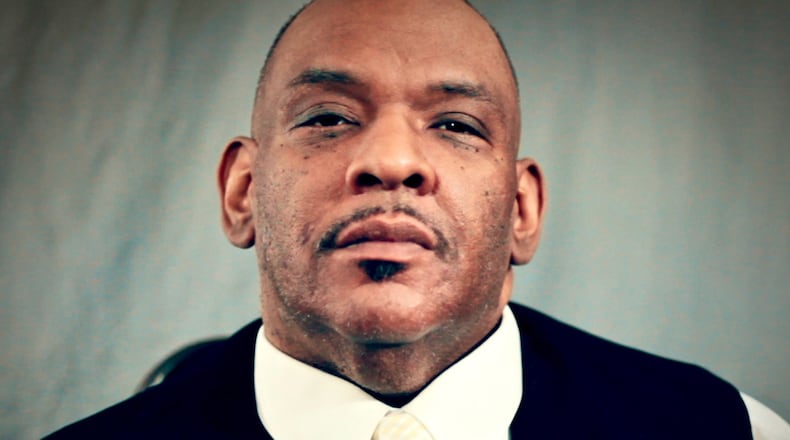But nowhere is Bailey more on his game in linking small-d American democratic values with the quest for equality than in the Kaepernick chapter, which, in the end, turned out to be book's final chapter.
In a country in which what it means to take a knee has been transformed, Bailey argues that the courage the San Francisco 49ers quarterback showed in doing so in peaceful protest of police violence against blacks was the “unmistakable act” of a patriot.
"It is difficult to imagine a single act of political dissent that could have had such widespread visibility, which could have been so widely imitated, and which could have stoked such vigorous debate without shedding a single drop of blood."
"It is equally difficult," he adds, "to imagine a response to systemic injustice that is more wholly American."
Bailey argues argues those who "derided Kaepernick as ungrateful, as un-American, and as a coward, ignored ... the remarkable courage it required for Kaepernick to consciously step into the path of the rushing freight train that is American patriotic sanctimony: to stand on those tracks, alone at first, knowing that the force barreling down on him was unstoppable and unforgiving."
"In another context," Bailey writes, "many of Kaepernick's detractors would see such unflinching self-sacrifice, undertaken at great personal and professional risk and solely for the good of his countrymen, as the very definition of heroism. In this context, however ... Kaepernick's act of protest was viewed not as heroism but as insolence."
Bailey's critique of Kaepernick's harshest critics is consistent with his tendency throughout to be more nuanced and less dismissive of those with whom he sharply disagrees.
He calls “this jingoist streak ... very human, one that has served humankind well and was perhaps a critical contributor to the evolution and survival of the human species in prehistoric times, when any out-group could represent an existential threat.”
"In a modern, multi-ethnic society," he says, "it is a barrier to progress."
Finally, Bailey draws a parallel between Kaepernick and America's founding fathers.
Washington, Jefferson, John Adams, Franklin and Hamilton "have spent the last two centuries lauded as heroes because they were willing to stand up to a status quo that treated them as second-class citizens, and to a government who refused to afford them the same rights and representation as their countrymen. The parallel to Kaepernick," he writes, "is quite nearly perfect.
"The Founders knew the power of symbols but they also knew that ... a symbol (like the flag), must be understood to represent something deeper. For many Americans, this distinction seems to have been lost. They have allowed the trappings of patriotism to supplant patriotism itself."
In other chapters, Bailey addresses a familiar checklist of race-related topics: environmental racism and why blacks are less likely to win the NIMBY battle; voter suppression in the states of the former Confederacy, but also in Ohio; the failure to take steps to suppress gun violence; and divisions over the Confederate battle flag.
In addition to being the words that appear in his title, Bailey considers racism, hypocrisy and bad faith words that belong on a Donald Trump T-shirt.
He describes Trump as not just the inheritor but the "id" of the Southern Strategy Richard Nixon employed after Lyndon Johnson signed the Voting Rights Act of 1964 and the former Dixiecrat states of the South made their great migration from blue to red.
He also accuses the president of undermining confidence in the legitimacy of all political debate - and thus democracy - in two essential ways: by ignoring realities that should serve as the foundation of meaningful debate and by undermining trust in the opposition by embracing the stock-in-trade of hyper-partisanship: “judging others by their worst examples while judging ourselves by our best intentions.”
A year ago, while finishing the book subtitled "A Moral Challenge to the America I Love," Bailey also posed both a moral and political question likely to be asked someday by a historians:
"An American football player with one knee planted on the AstroTurf should not rouse more fury than an unarmed, bullet-riddled American teenager gasping out his last breath on the asphalt of a St. Louis suburb. And yet it does. Why?"
Those who judge history in a moral sense only are likely to arrive at a simple answer, some who delve into the vagaries of human behavior are likely to find something more complex.
There is likely to be less disagreement on a comment Bailey made outside a Springfield coffee shop not long ago.
"If George Floyd hadn't died the way he did" - so publicly and with the video rolling - "he would just been another of many."
Final Note: Julius Bailey hosts Straight, No Chaser, which airs from 11 a.m. to noon Mondays and Wednesdays at its Facebook page. Upcoming guests include nationally known figures Cornell West of Harvard, who endorsed Bailey’s book, and Eddie Gaude, an MSNBC contributor and professor at Princeton University.
About the Author
